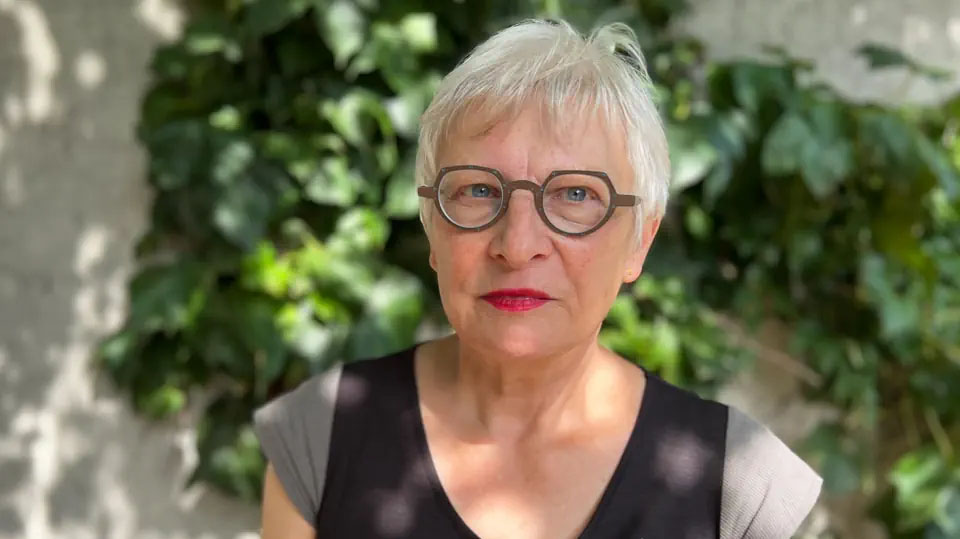Care in old age: childless people fall through the cracks

The Swiss care system is traditionally based on the idea that children will look after their elderly parents. But what happens to older people who have never had any offspring?
Walter Schütz* would have liked to have children, but his wife didn’t want any. She died five years ago; now he is 80 and alone.
“I’m not lonely,” he stresses. He has a large circle of friends. “Many of my contemporaries sit at home and wait for someone to contact them,” he says. He does things differently.
“For a year now, I’ve been regularly meeting up with a young female friend who is under 40,” he says, letting out a laugh.

It is estimated that there are about 150,000 elderly people in Switzerland in a comparable situation to Walter with no close relatives to look after them.
‘Many have no children’
And in the coming years, this number is expected to rise sharply, says Carlo Knöpfel, professor at the School of Social Work at the University of Applied Sciences Northwestern Switzerland (FHNW).
“Many older people today, who are not yet in need of care, do not have children,” Knöpfel says.
This can also mean that they have children, but who live far away. While it was often normal in the past for children to live in the same region as their parents, things are now different.
Switzerland’s nursing and care system is traditionally based on the idea that children will look after their elderly parents. Although medical care is covered by health insurance, anything beyond that is usually provided by relatives.
This involves everyday things, says Knöpfel: “Who supports me when I go shopping, who accompanies me to an office, who helps me with my finances? Who listens to me when I’m not doing so well? Or who looks after my dog when I have to go to hospital?”
Patricia Schnyder recently discovered what it’s like to suddenly become dependent on outside support. The 71-year-old has been a widow for the past ten years and has no children.

After falling from a ladder, she was unable to put any weight on her leg for nine weeks and was even in a wheelchair at the start of her recovery. She had to organise professional household help. During the final two weeks, she contacted her network of friends.
Various people came to visit and help with the shopping, gardening, or just to have a coffee with her. “I was extremely grateful for all this. My clear request made it easier for many to support me,” says Schnyder.
Childless study
For the first time in Switzerland, a study analysed the situation of elderly people who cannot rely on family support. Knöpfel and his team from the FHNW interviewed 30 people from all over Switzerland. Thanks to the evaluation, detailed insights are now available into the reality of life for older people who have no relatives to look after them.
Getting outside help is often a financial question. “There is a great disparity. Vulnerable older people with little money today struggle to afford appropriate help and care,” says Knöpfel.

Another reason older people do not receive support is that they are not even informed about the help which is available. Much more needs to be done here, Knöpfel says. Outreach work will also become increasingly necessary for elderly people in the future, he adds.
Schnyder is not yet dependent on help. But if the 71-year-old looks to the future, some questions remain unanswered. “For example, on the subject of finances, it would be nice if there was a son or daughter who could take them on one day.”
She is aware that she will probably have to manage and organise her future life sooner than others. “I’ll have to look for an institution or get help before my mind starts to become less clear,” she says.
Quiet fears
Walter Schütz is aware that things can move quite quickly. Five years ago, his wife suddenly lost her independence because of a brain tumour. He had to look after her almost 24 hours a day.
When it was no longer possible, his wife went to hospital, and later moved to an old people’s home. Shortly afterwards she died. This has made Walter Schütz reflect long and hard about his future. Lately, he has been wondering whether to look for a smaller flat that is more appropriate. But the idea of change also makes him worry.
At the federal level in Switzerland, a draft law in a consultation phase aims to provide supplementary benefits for people in need of special care. In this way, people with less money should have increased access to services. “The problem has been acknowledged,” says Knöpfel.
His study and these examples show that a functioning social network is of vital importance.
Knöpfel warns, however, that such networks are mostly made up of people of similar ages and in similar situations. “The resilience of such a social network has clear limits. That’s why there should also be professional offers,” he adds.
Eighty-year-old Walter Schütz sees things differently. He insists he has a good network: “I have many acquaintances or even my young friend,” he says.
He mentioned her several times during the interview. Is she a girlfriend or a surrogate daughter? Schütz thinks about it for a few seconds. “Maybe both,” he says.
*Name changed at source’s request. Real name known to author.

In compliance with the JTI standards
More: SWI swissinfo.ch certified by the Journalism Trust Initiative








You can find an overview of ongoing debates with our journalists here . Please join us!
If you want to start a conversation about a topic raised in this article or want to report factual errors, email us at english@swissinfo.ch.